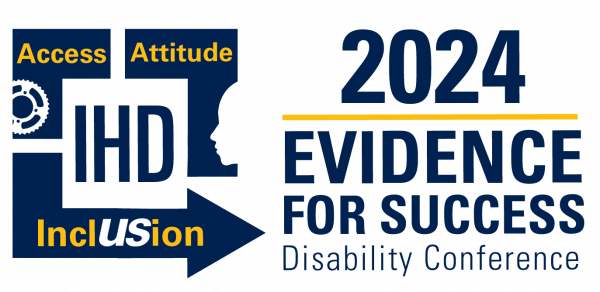
For a quarter of a century, the Institute for Human Development (IHD) at Northern Arizona University has been hosting one of the most respected disability conferences in the state.
Our 25th anniversary IHD Evidence for Success Disability Conference will take place on June 3-4 at the AAA Diamond Awarded Wild Horse Pass Resort in Chandler, Arizona (a short drive from downtown Phoenix and the airport). We are expecting a big turnout and have one of the strongest lineups of speakers and programs ever. As in previous years, the programming will focus on innovative practices in disability disciplines, assistive technology (AT) services and devices, and American Indian vocational rehabilitation. This year’s conference features 60 breakout sessions led by nationally known speakers and local experts as well as a vibrant exhibit hall with over 40 exhibitors.
Moreover, attendees can earn up to sixteen continuing education credit hours (12 hours for the general conference, and four for the preconference workshop on June 2). Certified rehabilitation counselor (CRC) credits are also available.
Our keynote speaker this year will be Mike May, an athlete, entrepreneur, and pioneer in the development of way-finding technology. Blinded by a chemical explosion at age three, Mike has been a pioneer in new product development since 1980 and holds leadership roles in multiple disability-serving organizations. His opening talk is titled “There Is Always a Way: Walkarounds and the Accessible Toolbox.”
Closing remarks will be delivered by Nina G – disability activist, writer, and “the San Francisco Bay’s favorite female stuttering stand-up comedian.” In addition to delivering the closing talk, titled “The Dyslexic Shuffle: Deepening Your Understanding of Dyslexia,” Nina will also share her comedy act with attendees at our networking reception on Monday evening. The reception is open to the community at no charge.
The conference also features day-long “strands” that allow participants to gain in-depth knowledge about certain topics. This year, strands include early childhood; blindness and low vision AT; the lived experiences of parents with disabilities; and American Indian/Alaska Native vocational rehabilitation.
Please visit our conference webpage for more information. We hope to see you there!